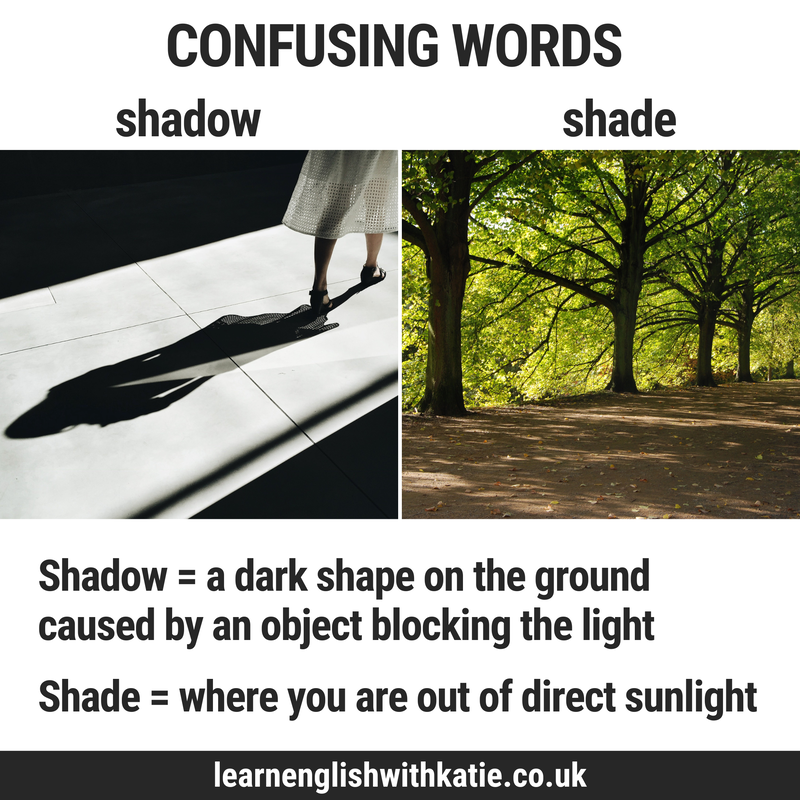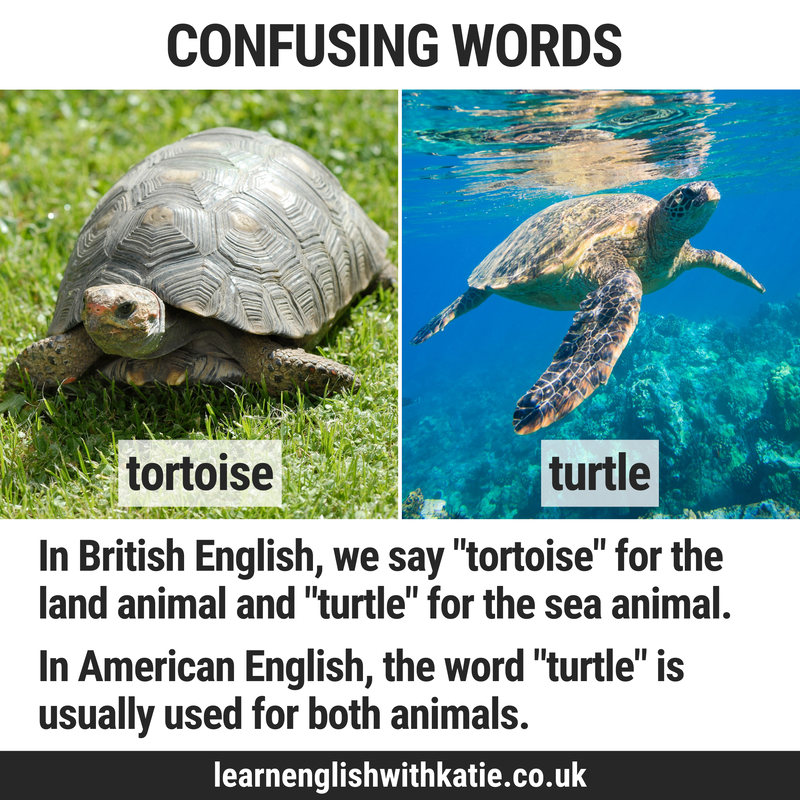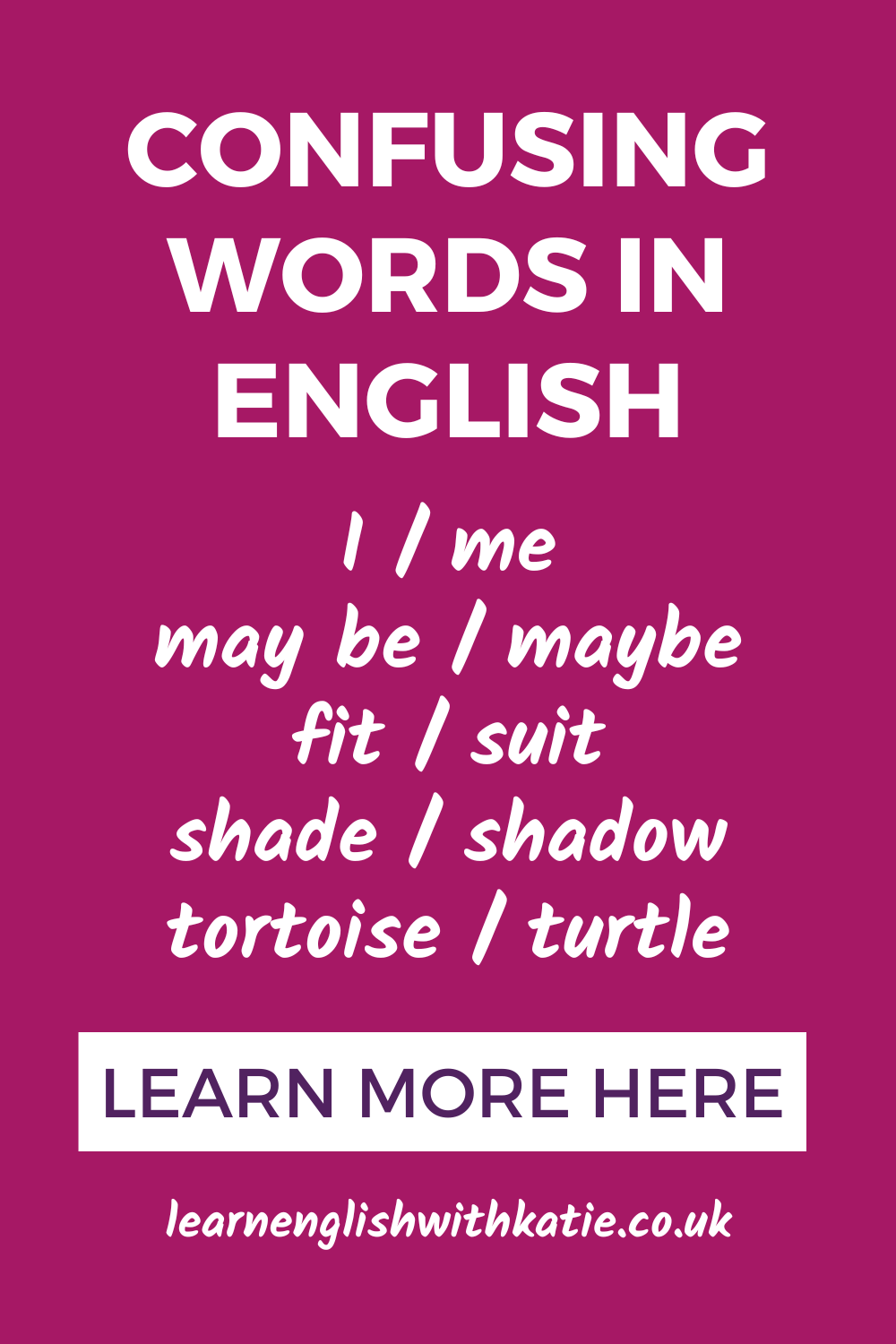|
Today’s post is another one in my series about confusing words. What words do YOU find confusing in English? Tell me in the comments and I’ll see if I can help you. I might even include your question in a future post. I and ME Use “I” as the subject. The subject is usually before the verb. It’s the person (or thing) that performs the action described by the verb. I went to London. Use “me” as the object. The object is usually after the verb. It’s the person (or thing) that is affected by the action of the verb. He helped me. I’m sure you already know this but did you know that the same is true when you add another person into the sentence. John and I went to London. (Notice it’s NOT “I and John”.) He helped me and John. You and I need to have a talk! You might actually hear native English speakers say “Me and John went to London”. Some people accept this in modern English, while other people say it’s wrong. We also use “me” after a preposition. Would you like to come to the party with me? Would you like to come to the party with me and John? Give that to me! Sometimes, we use “me” when actually “I” might seem more grammatical. Here are some situations like this: 1. In modern English, we DON’T say “It is I”. We say “It’s me”. For example, I often say “Hello, it’s me” when I phone my Mum. Similarly, I have a key to my parents’ house so if I let myself in, I might shout, “It’s only me!” when I arrive so they know I’m not a burglar! 2. If I’m describing a photo, I can say “This is me in front of the Eiffel Tower” or “This is me and my friend in Paris”. I might write “Me in Paris”. 3. When a teacher asks her class, “Who would like to help me?” or “Who knows the answer?” the children might say “Me!” They might also say “I do” but they would never say “I”. 4. After “than”: She speaks English better than I do. She speaks English better than me. She’s taller than I am. She’s taller than me. (“She’s taller than I” might be considered correct by some people but it sounds strange to me and it’s definitely not common in twenty-first-century English!) This can sometimes be a problem. The following sentence is ambiguous (not clear): She likes him more than me. Does this mean “She likes him more than she likes me” or “She likes him more than I like him”? It could mean either! The meaning might be obvious from the context or we would make it clearer by stressing certain words: She likes HIM more than ME. = She likes him more than she likes me. SHE likes him more than ME. = She likes him more than I like him. If it’s the second meaning you want, it might be clearer to say: She likes him more than I do. MAYBE and MAY BE The meaning of “maybe” and “may be” is actually the same but the grammar is different and the way we use them in a sentence is different. Maybe = perhaps = possibly It’s an adverb and it can also be used as a one-word response. I’d love to go to Australia. Maybe I’ll get the chance one day. Maybe it’s true, but maybe not. I go for a walk maybe two or three times a week. A: Are you going to the party tonight? B: Maybe. You could use “perhaps” or “possibly” instead of “maybe” in all these examples. May be = might be “May” and “be” are verbs. It may be true. I may be a few minutes late. You may be right. This may be your last chance to tell her how you feel! You can use “might” instead of “may” in all these sentences with little or no change in the meaning, although perhaps “may” makes it sound a little more possible and “might” makes it sound a little less possible. Remember that every sentence needs a verb. He may be hungry. Verbs = “may” and “be” Maybe he is hungry. Verb = “is” “He maybe hungry” is NOT correct because there is no verb in this sentence. FIT and SUIT fit = to be the right size for you - not too big, small, tight, loose, long or short I’ve put on weight and these trousers don’t fit me any more! Try this dress on to see if it fits you. Cinderella tried on the glass slipper and it fitted her perfectly! (In UK English, the past tense of “fit” is “fitted”. In US English, the past tense can be either "fitted" or “fit”.) suit = look good on you Your new glasses suit you! Bright colours don’t suit me. I like her new hairstyle. It really suits her. SHADE and SHADOW In many languages, there is only one word for these two different things. shade = where you are out of direct sunlight Shade has no specific shape. It just means out of direct sunlight. In the summer, I always try to sit in the shade. I can't sit in the sun because I get sunburnt very easily! shadow = a dark shape on the ground caused by an object blocking the sun or the light When you see a shadow, it has the same shape as the object causing it, although it might be longer or shorter depending on the time of day or the position of the light source. Have you noticed how your shadow is shorter in the middle of the day and much longer in the evening or early morning? A shadow can be caused by any light source, not only the sun. Our shadows grew longer as the sun went down. He used his hands to make shadows on the walls as he told the story. TORTOISE and TURTLE These are both animals that have a domed shell. The shell covers the body and has holes for the head and legs. In British English, we say "tortoise" for the land animal and "turtle" for the sea animal. In American English, the word "turtle" is usually used for both animals although the word “tortoise” does also exist in the American English dictionary. The Encyclopaedia Britannica says, "All tortoises are in fact turtles … but not all turtles are tortoises." If you like posts like this, you might also be interested in my Common Mistakes e-book. This PDF download contains 90 of the most common mistakes made by English learners. There are exercises for you to try, answers to the exercises and explanations for each of the mistakes. Click the button to get your copy:
0 Comments
Your comment will be posted after it is approved.
Leave a Reply. |
About the blogFollow the blog for mini lessons and tips on how to improve your English. Categories
All
Archives
July 2024
|



 RSS Feed
RSS Feed
